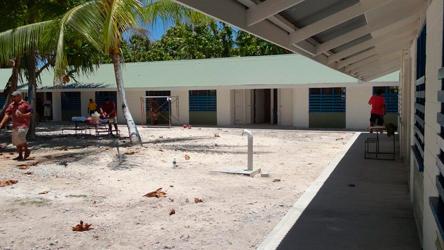
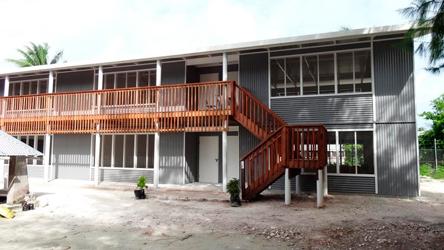
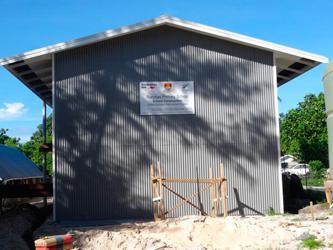
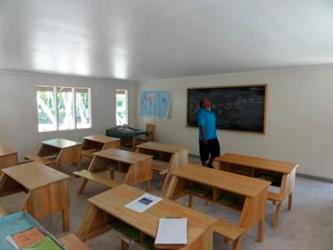
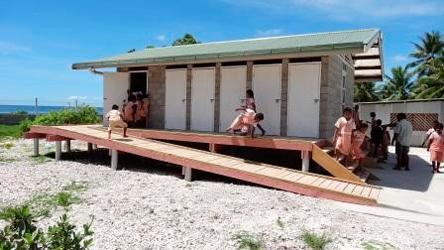
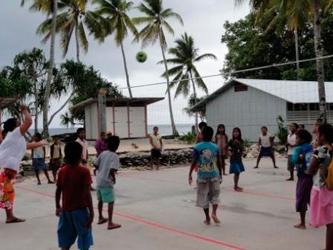
Kiribati Education Improvement Program
The Kiribati Education Improvement Program (KEIP) is the framework within which the major donors to the education sector are supporting the Government of Kiribati (GoK) address goals as set out in the Education Sector Strategic Plan (ESSP) 2012 – 2015. Under the KEIP, primary schools are being progressively upgraded with an annual budget of AUD 2.4M to meet the National Infrastructure Standards (NIS) and the Kiribati National Building Code.
KEIP Phase 1 involved the substantial upgrading of six primary schools in the Outer Islands under a 12 month ‘pilot’ to determine appropriate construction procurement systems for use in Kiribati. A range of construction methods were explored and a number of implementation systems trialled in order to spread benefits widely (suppliers, contractors, shipping, PWD foremen, specialist tradespersons, Island Councils, local supervisors, local tradespersons) and to avoid over-stimulating small island economies. Subsequent phases of the project have concentrated on addressing the overcrowding issues in urban schools on South Tarawa and the Line Islands.
During KEIP Phase 1 (2011-12) A&L was responsible for managing the infrastructure program including site inspections, meetings, design, drafting, material quantities, tendering, contract formation, contract administration, etc. A&L was also responsible for upgrading the National Infrastructure Standards (NIS) and building the capacity of the Ministry of Education’s Facilities Management Unit (FMU).
In subsequent phases of the program, A&L has provided and on-call pool of infrastructure advisers to assist the KEIP Infrastructure Team through all stages of implementation. In particular, A&L has been integral in the following ground-breaking activities:-
- Development of a ‘modified’ traditional classroom to satisfy floor area, disabled access, natural light & ventilation requirements whilst being fully maintainable by outer island communities;
- Development of concrete blockwork classrooms with buttressed walls and stainless steel strap reinforcing to eliminate the ‘concrete cancer’ which plagues most permanent buildings in Kiribati;
- Development of single and double storey timber ‘kitset’ classroom buildings using highly durable imported materials but fabricated by a local firm in Tarawa and assembled by local contractors under labour-only contracts.